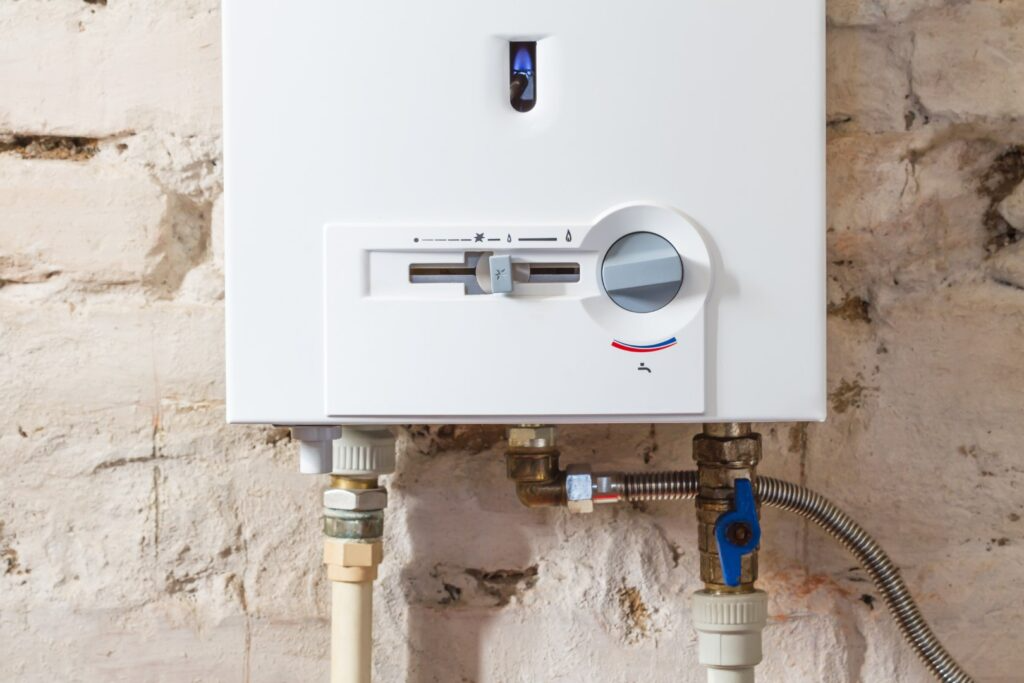

You have locked in the price, circled a date, and told friends you are finally moving. The real estate closing should be a smooth final chapter.
But then you see it is moving at a snail’s pace. And you are left wondering, what could possibly go wrong? Closing delays strike when you least expect them, transforming excited homeowners into anxious nail-biters overnight. One day you are selecting your paint colors, the next you are explaining to friends why you can’t move in as scheduled.
Unexpected hiccups can make the finish line feel miles away, whether you are buying or selling your property. From financing fumbles to last-minute surprises, closings can stall for reasons you didn’t see coming.
However, this can be prevented. Here is the deal: a little preparation can keep you from pulling your hair out.
Ready to protect yourself from these common pitfalls? Let’s run through the 7 most common reasons your property closing might hit the brakes and how to avoid them.
The average home closing still takes about 30 to 45 days from start to finish. This applies to most deals that involve mortgages, appraisals, home inspections, and setting up insurance coverage.
If it is a cash deal, things tend to move much faster. Since there is no bank involved, these types of transactions can close in two to three weeks. On the other hand, deals involving loans or first-time buyer programs often move more slowly. The reason is that there is simply more documentation to complete, which can add several weeks to the timeline.
Not all delays come from the paperwork. Sometimes it is a matter of scheduling. A seller may ask for extra time to move out, or a buyer may need to coordinate with a job or school timeline. It all adds up and can quietly extend the process.
According to data published in early 2024 by the National Association of REALTORS® (NAR), around 11% of home sale contracts experienced delays, and about 6% didn’t make it to the finish line at all.
Most people expect some paperwork and waiting during a home sale, but very few anticipate just how bumpy the closing phase can get. To help you be better prepared, we have rounded up 7 of the most frequent reasons why a real estate closing gets held up.
A buyer might walk in with a preapproval letter, but that doesn’t guarantee their financing is set in stone. Final loan approval depends on updated reviews of their income, debt, and credit.
If interest rates rise or a buyer’s financial picture changes, say they take on new debt or switch jobs, it can shake up the entire approval process. Deals often get delayed while lenders reassess whether the buyer still qualifies under current terms. It’s not always a hard no, but it’s definitely a pause button that can shift your closing timeline quickly.
Before a lender writes the final check, they want proof that the home is worth what the home buyer offered. So, before moving forward, they call for an official appraisal. But if that appraisal falls short of the sale price, things can get messy. Lenders won’t back the full amount, and that holds up the real estate closing.
These low appraisals aren’t rare these days, thanks to skyrocketing prices. The deal might still go through, but it takes time to figure out how to cover the gap, and that delay is frustrating for everyone involved.
The title shows legal ownership of a property, and it has to be 100% clear before you can close on a home. It’s the process that confirms the seller actually has the right to sell, and that no one else has legal claims tied to the property.
If the search finds things like unpaid taxes, liens, or ownership disputes, the closing can’t move forward until it is sorted out. Either way, a messy title means the sale hits pause. Even overdue Homeowners Association (HOA) fees or minor errors in public records can hold up the process. These issues aren’t always deal breakers, but they definitely cost you time.

Before closing, buyers usually schedule an inspection, and it’s often a deal-changer. Mold, damaged wiring, or foundation cracks aren’t things home buyers want to inherit.
Even if it’s something small, like a missing fixture or clogged drain, it can still hold things up. Then comes the final walk-through. If the home seller fails to complete a promised repair, it can hold up the real estate closing. New issues, like a malfunctioning thermostat, can also cause delays while both sides work out a solution.
In cities like Rutland of Vermont, where many homes are decades old, these last-minute repair discoveries are more common than you’d think. Buyers who already have local home protection plans in Rutland often find it easier to move past these sticking points without derailing the deal
Closing day comes with a big ask: you’ll need to send in your down payment and closing costs. But if there’s a hiccup with that transfer, the entire process can come to a halt.
Some title companies want a wire transfer, while others still accept cashier’s checks. That’s why it’s important to confirm payment instructions in advance.
Missing a deadline, transferring to the wrong account, or sending funds late in the day can all trigger delays. A simple banking misstep could push closing to the next day, or even the next week.
It’s common for buyers and sellers to agree on certain conditions in the contract. These are called contingencies, and if one doesn’t come together, the deal can fall apart.
Maybe the buyer has to sell their own home first. Or maybe they can’t lock down insurance because the property sits in a risk-prone area. Until all boxes are checked, nobody’s picking up keys just yet.
Not every property’s boundaries are as clear as they look. Disputes over fences, driveways, or paths that spill into a neighbor’s yard can raise red flags.
A land survey usually clears things up, but if it reveals an encroachment or legal mismatch, it could put the brakes on the property closing. In some cases, all parties need to sign affidavits agreeing to the boundary lines. But if one person is unreachable, or there’s disagreement, it can take days or weeks to get sorted out.
Not every closing delay turns into a disaster. Sometimes, all it takes is a quick call or a missing signature to get things moving again. But not every issue is that easy. Let’s break down some of the common ways real estate closing delays can cost you and how a little planning can help you steer clear of them.
No one wants to be that buyer who hits a roadblock days before closing. Fortunately, avoiding delays doesn’t require magic, just a little planning, steady communication, and knowing what not to do. Here are a few ways to keep the process running like clockwork.

Real estate closing delays aren’t just frustrating, but more than that. They can affect your budget, your plans, and your peace of mind. Getting to closing day can feel like a marathon, but the final stretch still counts. To avoid tripping up at the end, be sure to follow up with your team, review all paperwork, and stay on top of the details.
Delays can occur due to overlooked details or unexpected repairs. With Select Home Warranty, you get a sense of reassurance knowing key issues might be covered and resolved quickly. In a process where timing is crucial, home warranty options can be a straightforward way to maintain momentum and keep the deal intact.
Closing on a home usually takes about 30 to 60 days after the home purchase agreement is signed. The exact time can change depending on various factors such as loan approval, the speed of responses, and any unexpected issues that may arise during the process.
Yes, you can speed up the process by getting pre-approved for a mortgage. Keep all your documents ready, and maintain regular communication with your lender, agent, and attorney. Paying in cash can also make the process quicker, as it skips the loan approval step.
If the home’s appraised value is higher than what you offered, that’s good news! You’re likely getting a great deal and some built-in equity. But it doesn’t change the price you agreed to pay or the loan amount, which stays based on the purchase price.
Not always. Closing day is when you sign the papers and officially become the owner, but you may not move in until later. It depends on what was agreed in the contract. Sometimes, the seller needs more time to move out, or the home may require some cleaning or minor repairs first.
If the seller isn’t ready on closing day, it could delay the sale. You might agree to give them more time, sometimes with a daily fee for the delay. In some cases, you may also have legal options, such as seeking compensation for breach of contract or pursuing efforts to keep the sale moving, depending on the terms of your contract.
Yes, if the contract allows it, the seller can charge a daily fee if the buyer causes the delay. This fee helps cover the seller’s additional costs, such as mortgage payments or utility bills, while they wait for the sale to close.
To help things go smoothly, sellers should address known issues promptly, gather all necessary paperwork in advance, and work with a reputable real estate agent. Getting a home inspection before listing can also identify problems that may slow down the process later.
Disclaimer: The information in this article is intended to provide guidance on the proper maintenance and care of systems and appliances in the home. Not all the topics mentioned are covered by our home warranty plans. Please review your home warranty contract carefully to understand your coverage.
Our blogs and articles may link to third-party sites that offer products, services, coaches, consultants, and/or experts. Any such link is provided for reference only and not intended as an endorsement or statement that the information provided by the other party is accurate. We are not compensated for any products or services purchased from these third-party links.

Don’t wait until it’s too late! Check out our current plans and get your free quote.

Household Tips
Ever wonder what keeps your drains flowing and prevents nasty sewer smells from creeping into your home? The answer lies in your plumbing stack, a vertical pipe system most homeowners..

Household Tips
With all the different types of water heaters available, choosing the right type is essential to ensure comfort and efficiency in your home. Whether you are in the market for..

Household Tips
One day you might take a shower, and the next you might run the bath. For everyone with a combination shower and bathtub, this is a choice we don’t expect..